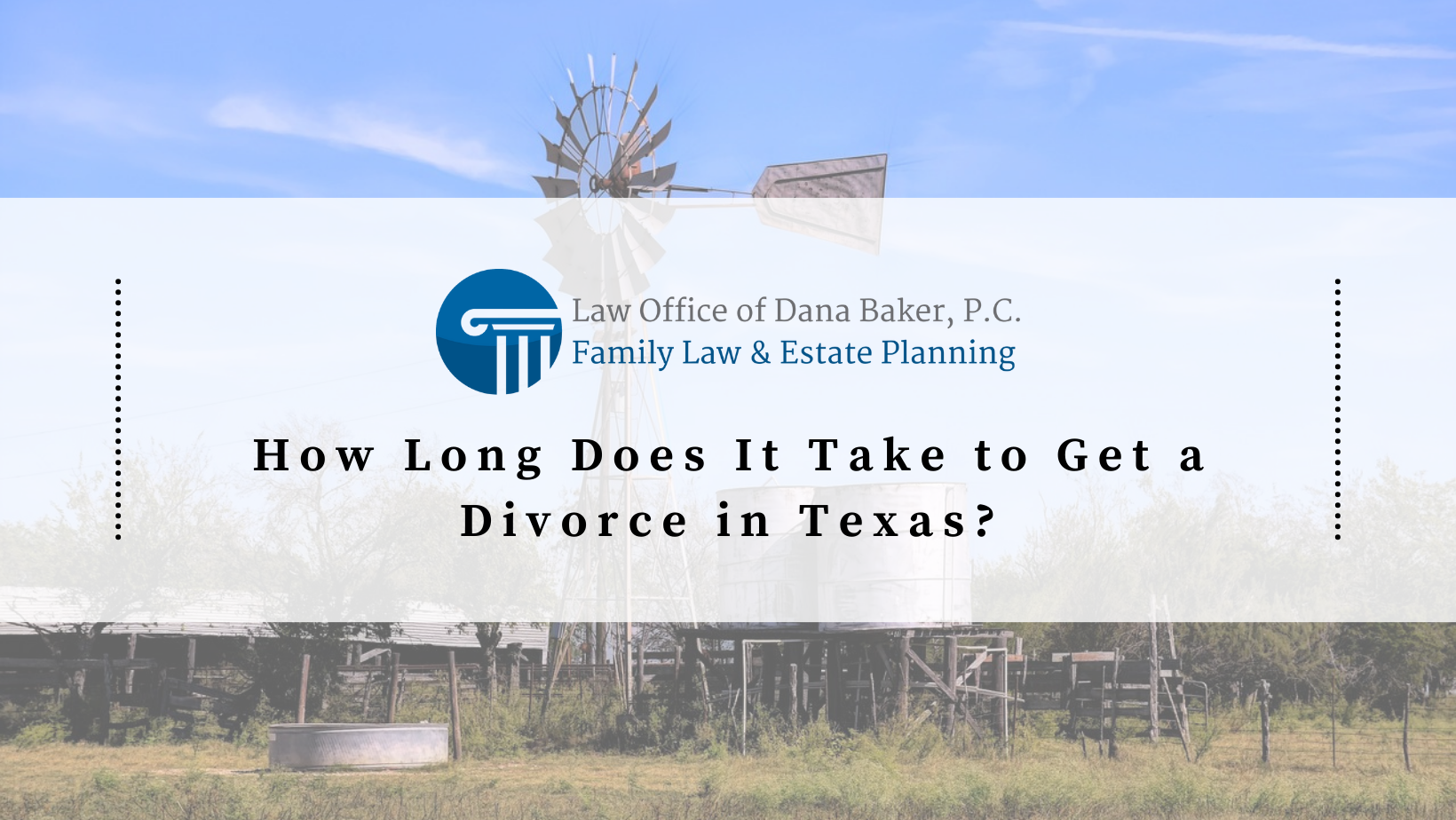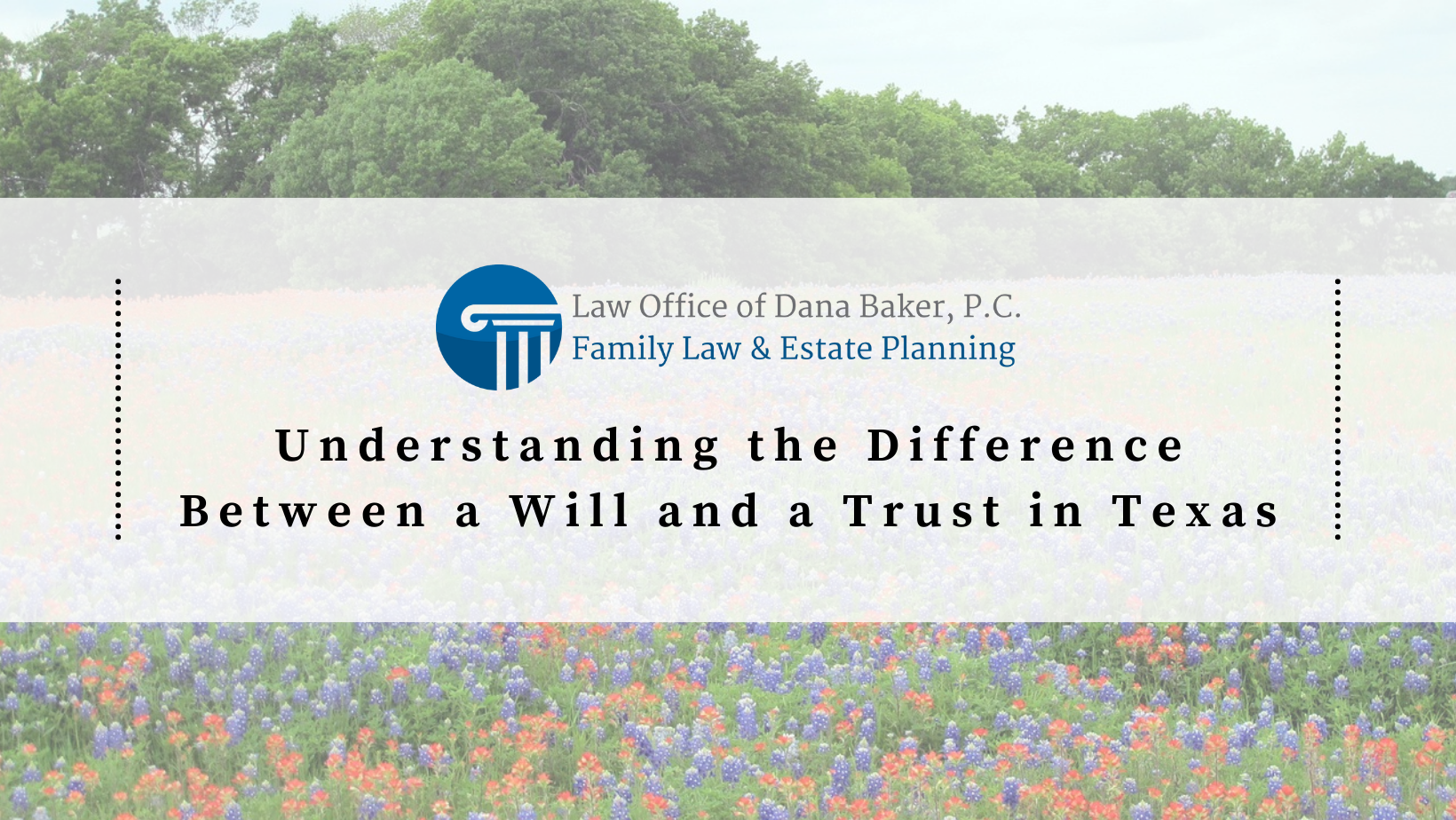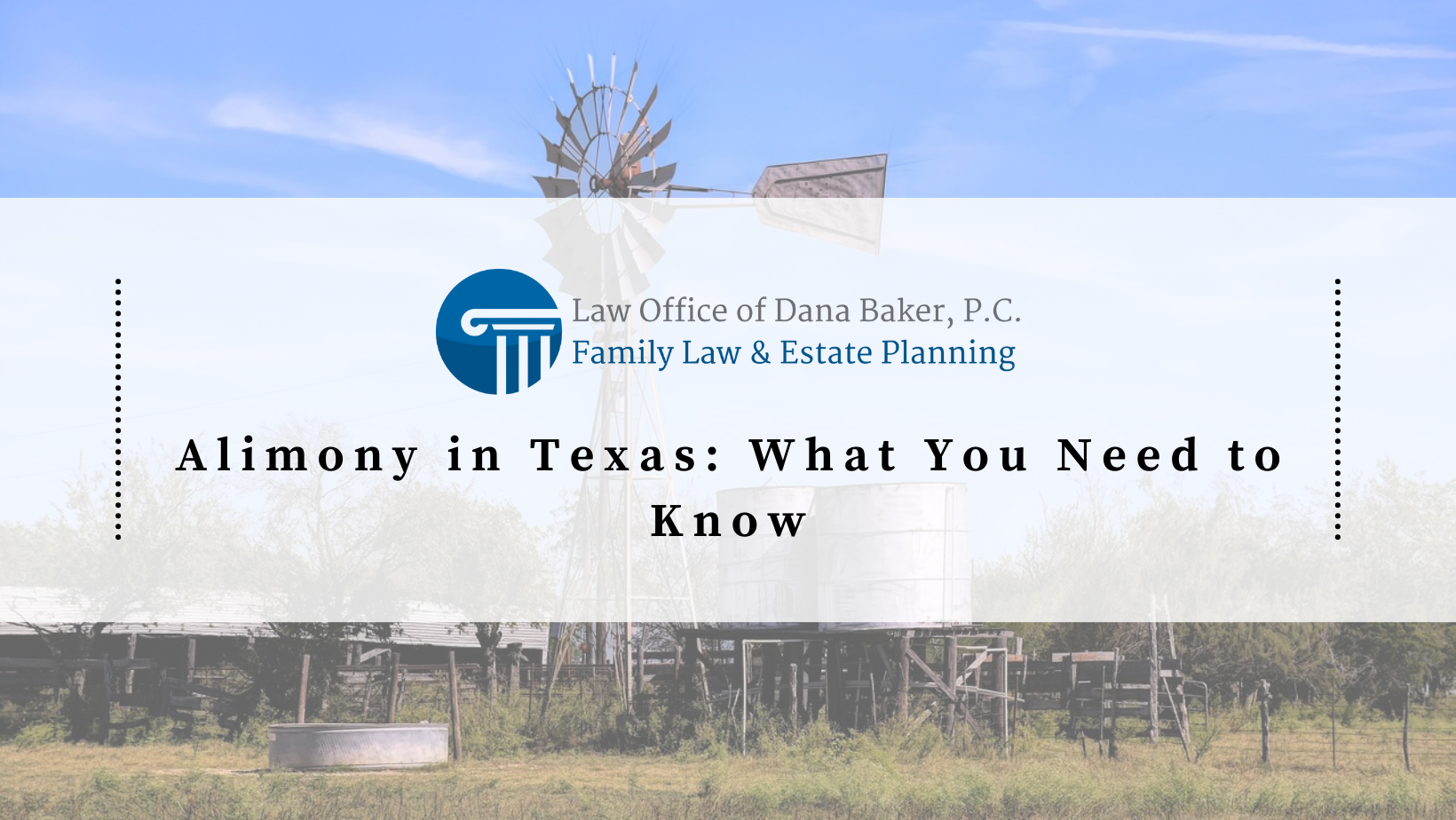
Navigating the complexities of divorce can be emotionally and logistically challenging. One of the primary concerns for many individuals is understanding the timeframe involved. If you're considering or are in the midst of a divorce in Texas, you might be wondering: How long will it take to finalize the divorce? Let's delve into the Texas family law to answer this question. The 60-Day Waiting Period First and foremost, Texas law mandates a 60-day waiting period from the date the divorce petition is filed until a court can finalize the divorce. This means that, in the most straightforward cases, where both…Read More

One of the most common questions posed by clients delving into estate planning in Texas is, “What’s the difference between a will and a trust?” It’s an essential distinction to understand, as these are two fundamental tools in the estate planning toolbox, each serving unique purposes and offering different benefits. Will vs. Trust in Texas: Understanding the Key Differences In Texas, as in other states, estate planning is an essential component of managing one's assets and ensuring they are distributed as desired upon death. Two of the most common estate planning tools are wills and trusts. While they serve related…Read More

When navigating the turbulent waters of divorce, one of the questions that often arise is related to alimony, also known in Texas as "spousal maintenance." Will you have to pay it? Can you receive it? Here's what you need to know, based on Texas law. What is Alimony or Spousal Maintenance? Alimony, or spousal maintenance in Texas, is a financial support that one spouse may be required to pay to the other after a divorce. This is to ensure that a spouse who might not have the financial independence or the means to support themselves post-divorce is not left…Read More

When going through a divorce or custody battle in Texas, one of the primary concerns many parents have relates to child support. It's crucial to understand how child support is determined, as well as the circumstances under which it can be modified. In this blog post, we'll break down the essentials of child support calculation in Texas and discuss potential modifications. How Is Child Support Calculated in Texas? In Texas, child support is primarily calculated using a set percentage of the non-custodial parent's net resources. Here's a brief breakdown of how it works: Determine Net Resources: This includes all types…Read More

The thought of passing away without leaving behind specific instructions for our belongings can be a daunting one. For Texans, understanding the laws surrounding intestate succession, or the process that dictates how assets are distributed if one dies without a valid will or trust, is essential. Here's what happens under Texas law. The Basics of Intestate Succession in Texas If you pass away without a will or trust in Texas, you are considered to have died "intestate." As a result, Texas state laws will determine how your property is distributed, regardless of your personal wishes or the needs of your…Read More

Divorce can be an emotionally and legally challenging process. If you're considering getting a divorce in Texas, or if you've been served with divorce papers, it's crucial to understand the process and what to expect. This article will provide an overview of the divorce process in Texas. Meeting the Residency Requirement Before filing for divorce in Texas, at least one spouse must have been a resident of the state for a continuous six-month period and a resident of the county where the divorce is filed for at least 90 days. Initiating the Process: Filing the Petition The divorce process begins…Read More

Defining the Medicaid Estate Recovery Program: The Medicaid estate recovery program is a federally mandated initiative aimed at recovering assets from certain individuals who have received specific Medicaid benefits after their death. However, the program's details and scope can vary from state to state, making it important to understand how it operates in your region. Each state has the flexibility to implement its own Medicaid estate recovery program, resulting in variations in its procedures and rules. The overarching purpose of the program remains consistent: to discourage people from obtaining benefits they may need. Assets Subject to Recovery: The assets subject…Read More

